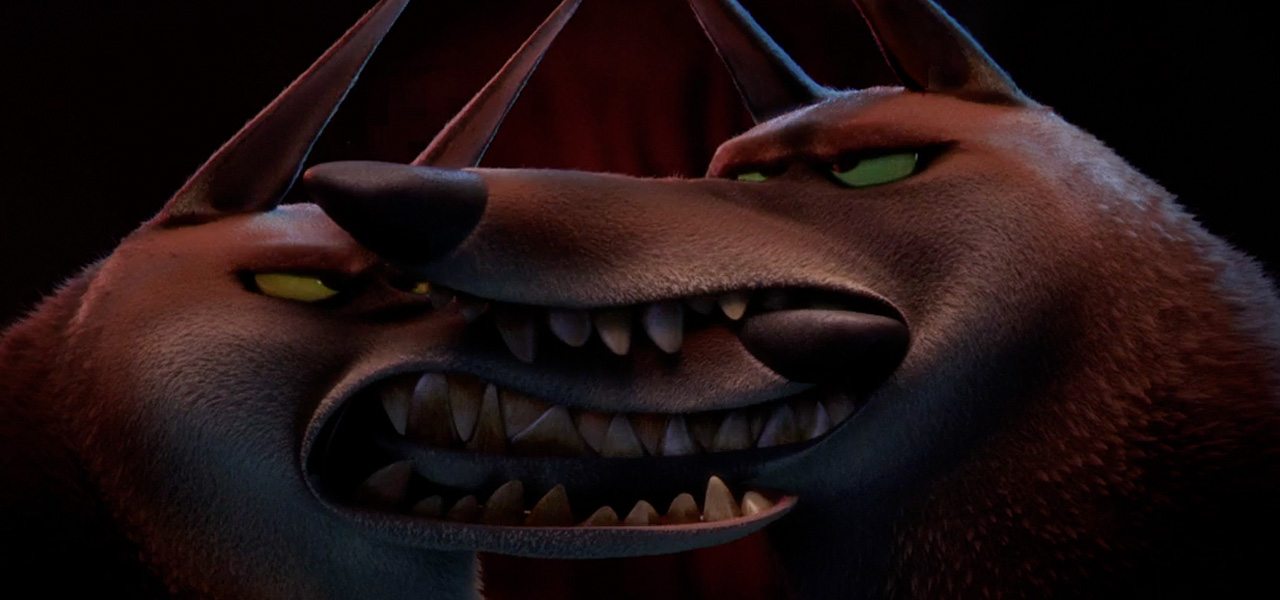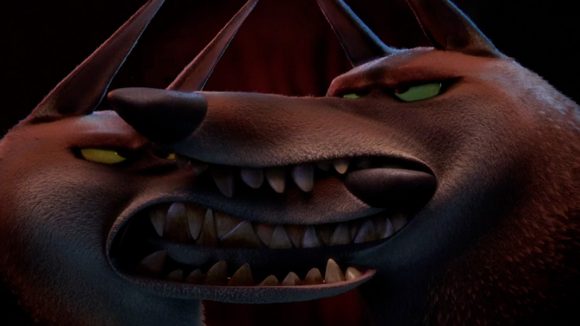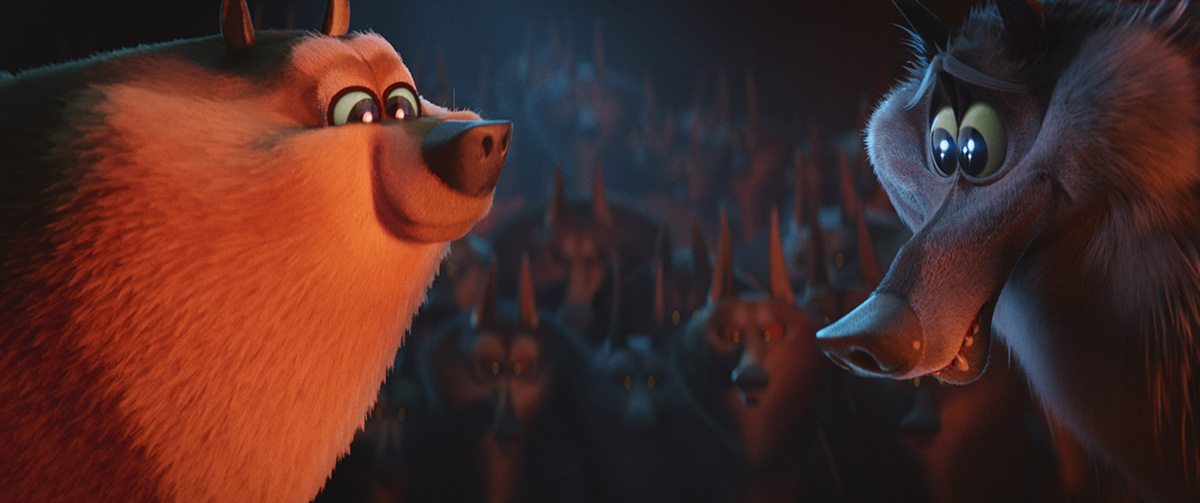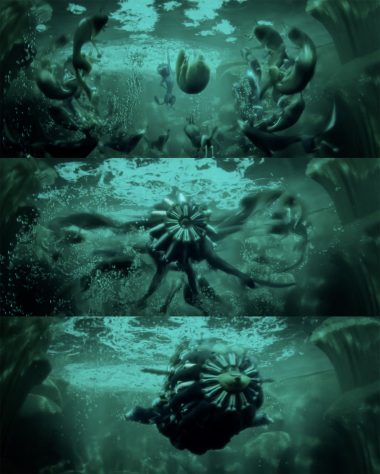

How the ‘Storks’ Filmmakers Transformed A Pack of 100 Wolves Into…Anything
You might not ever be able to think about wolf packs the same again after seeing Storks. That’s because the scene-stealing characters in the new Warner Animation Group film from directors Nicholas Stoller and Doug Sweetland are a tribe of 100 wolves who can configure themselves into almost any shape—from suspension bridges to submarines—thanks to animation by Sony Pictures Imageworks.
If that kind of zaniness sounds out of place in a film about how storks deliver babies, it’s certainly designed that way. While other characters in the film are intent on delivering a new baby to a waiting family, the wolf pack – led by Alpha (Keegan-Michael Key) and Beta (Jordan Peele) – are also in hot pursuit. They overcome almost any obstacle by calling out their desired structure or vehicle and transforming into exactly that, with wolves.
For example, when they need to cross a vast chasm, the wolf pack form a bridge out of themselves. It features wolves as the chain holding up a drawbridge of wolves. One wolf even uses a wolf to hammer in another wolf into place. All these shapes had to be instantly recognizable as the desired shapes and as being made out of wolves.
That task fell to Imageworks, which had both an effects and animation-based solution. The studio initially went down a path of procedural generation for the ridiculous but rather useful shapes, since the configurations would ultimately be made up of many wolves with similar attributes. An attempt was made to take wolf run cycles and slot these into the final wolf positions. However, an extra ‘animator’s touch’ was deemed necessary to maintain the readability of the wolves even though they become squishy and pliable.
“We really needed to create final poses that were interesting and specific to the shape that the wolves were making,” said Imageworks visual effects supervisor Dave Smith. “Things like this usually require the computer to do most of the solving. In this case we allowed the animators to go in there and do their thing.”

Imageworks artists Alan Camilo and Melt Van Der Spuy devised a specialized toolset to give artists flexibility in producing wolf configurations. The process began by hand-drawing the configuration the wolves would get into and using that to establish possible poses.
“By 2D animating them first,” said Imageworks animation supervisor Joshua Beveridge, “we could get a buy-off on how much time it was going to take and what the idea was and what motion was going to happen. Then we retro-fitted how that would work into the space.”

The idea here was that the size, shape and silhouette of the configured had to be immediately evident. The specialized tool then allowed animators to work with scores of wolves at a time and pose them into the very unique shapes they needed to form, and then animate them.
One of the more extravagant configurations is the wolf pack submarine which began life as a clearly readable silhouette but then continued to be refined with individual wolves (one even makes a classic sonar noise). “The sub was a big undertaking in terms of curating all the edges and tucking in their noses and sticking their paws in,” said Beveridge.
“Then they move as a unit and that had to have its own global squishiness. We’re talking about hundreds of characters all squished up in unison together and pressed up against each other, and I don’t think I’ve seen that anywhere else before.”

